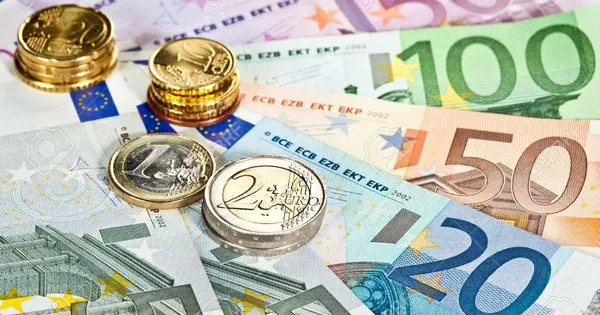Since its inception in 1999, the euro has been one of the world’s most traded and widely held currencies. However, in recent years, the currency has faced numerous challenges that have led to its decline in value against other major currencies like the US dollar, Japanese yen, and British pound. Today, the euro is experiencing another drop in value, leaving many wondering why this is happening.
Economic Factors
One of the primary reasons why the euro is falling today is due to economic factors. Europe is facing several challenges, including a weak economy, high levels of unemployment, low levels of growth, and political instability. These factors are affecting investor confidence in the eurozone, leading to a decrease in demand for the currency.
The European Central Bank (ECB) has been trying to stimulate the economy by keeping interest rates low and providing liquidity through quantitative easing programs. However, these measures have not been enough to spur growth in the region, and investors are becoming increasingly concerned about the future of the eurozone.
Political Uncertainty
Another factor contributing to the decline in the euro’s value is political uncertainty. Europe has been facing numerous political challenges in recent years, including Brexit, immigration, and rising nationalism. These issues have led to a lack of clarity about the future direction of the eurozone, which has made investors nervous about investing in the currency.
For example, the ongoing Brexit negotiations have cast a shadow of uncertainty over the entire region. The UK is one of the largest economies in Europe, and its departure from the EU could have far-reaching consequences for the eurozone. Similarly, the rise of nationalist parties in countries like Italy and France could lead to further political instability and economic uncertainty.
Trade Wars and Tariffs
Another significant factor causing the euro to fall is the ongoing trade wars and tariffs between the US and China. These trade tensions have had a ripple effect on the global economy, affecting trade and investment flows around the world. Europe is not immune to these effects, and as a result, the euro has been under pressure.
The US has imposed tariffs on several European goods, including steel and aluminum, which has led to retaliatory measures by the EU. These trade tensions have created uncertainty in the market, leading investors to seek safer currencies like the US dollar.
Impact on Investments
The falling value of the euro can have significant implications for investors. For example, if an investor holds investments denominated in euros, the decline in the currency’s value can negatively impact their returns. This is because when the euro falls, it takes fewer units of the currency to buy the same amount of another currency, such as the US dollar.
Furthermore, if an investor is holding euro-denominated debt, they may find it more challenging to pay back their debt in the future due to the declining value of the currency.
What Does the Future Hold?
It is difficult to predict what the future holds for the euro. However, there are several factors that could impact the currency’s value going forward. For example, the ongoing trade tensions between the US and China could escalate, leading to further economic uncertainty and a decline in demand for the euro.
Additionally, political uncertainty in Europe could continue to weigh on the currency’s value. The upcoming elections in Italy and Germany could lead to further political instability, which could negatively impact investor confidence in the region.
Conclusion
In conclusion, the euro is falling today due to several economic, political, and trade-related factors. These challenges have led to a decline in investor confidence in the eurozone, causing a decrease in demand for the currency. While it is challenging to predict what the future holds for the euro, ongoing trade tensions and political uncertainty in Europe could continue to weigh on its value in the coming months and years. As such, investors should remain vigilant and keep an eye on developments that could impact the currency’s value.


